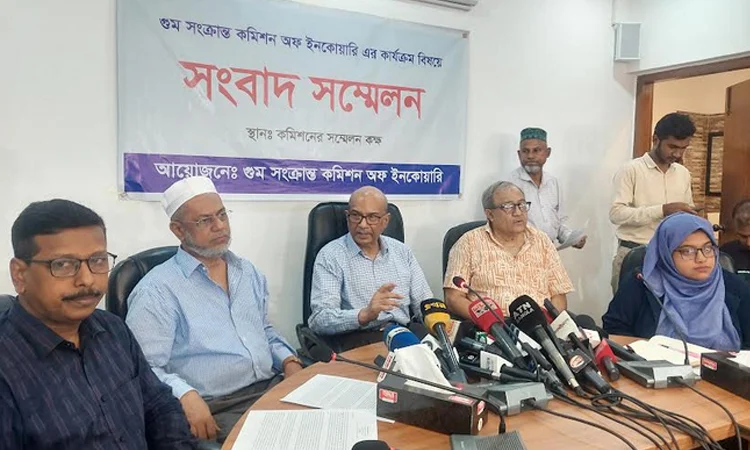News Flash

DHAKA, June 19, 2025 (BSS) - Justice (Retd) Moinul Islam Chowdhury, Chairman of the Commission of Inquiry on Enforced Disappearances, said today that most victims of enforced disappearances during the deposed Sheikh Hasina regime faced one of four grim outcomes.
There had been four possible consequences for most victims of enforced disappearances: death, media trial by branding them as terrorists or militants followed by new criminal charges, arrest in India after being pushed across the border, or eventual release without prosecution but often after torture, he said.
He disclosed these findings while presenting the commission's second interim report at a press conference held at its office.
Moinul Islam asserted that the former regime systematically used enforced disappearances as a tool to suppress dissent.
"Many well-wishers of the fallen regime who are still in service have destroyed evidence, obstructed the inquiry, and created a climate of fear among witnesses and victims," he noted.
Victims included meritorious students, political activists, and journalists.
The commission chief said the Hasina administration institutionalized enforced disappearances under the guise of counter-terrorism to consolidate political control.
He further said, "The government politicized law enforcement and weaponized the criminal justice system to carry out these acts."
Addressing cases where victims remain missing, he said, "According to Section 10 of the Commission of Inquiry Act, 131 cases have been documented through general diaries and forwarded to the Inspector General of Police for search and rescue."
He emphasized the now-undeniable existence of secret detention centres. "Victims underwent nearly identical patterns of detention, torture, branding as terrorists and legal charges using similar language. This uniformity across diverse cases clearly points to political motives," he said.
"Initial investigations have been completed for 12 victims who are still missing. We have identified those responsible for their disappearances," he added.
Despite institutional non-cooperation and pressure, the chairman affirmed the commission's resolve to continue its work.
Commission members retired Additional Judge Farid Ahmed Shibli, human rights activist Nur Khan, BRAC University faculty member Nabila Idris and rights advocate Sajjad Hossain were present at the press conference.